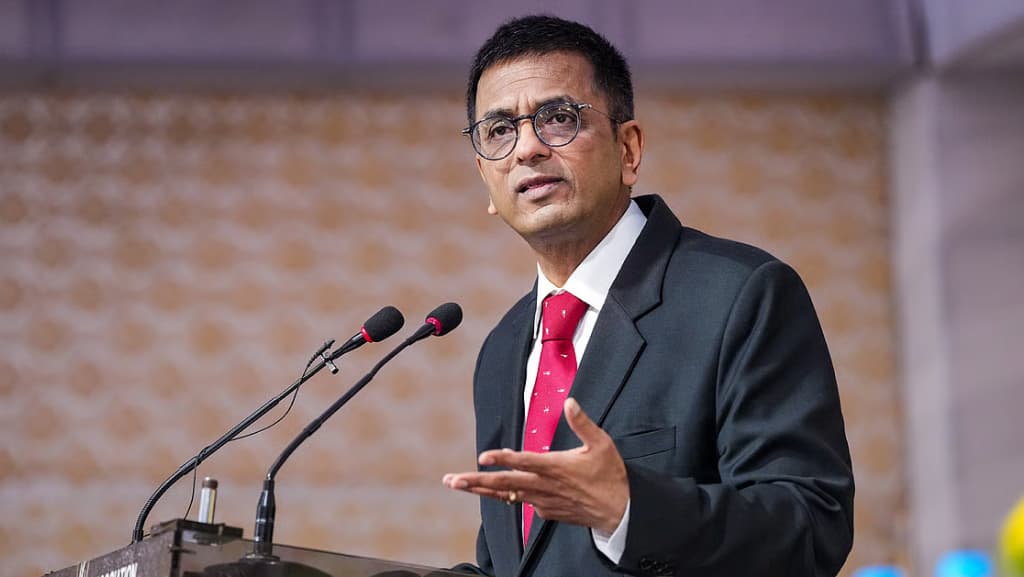
Indian Courts Have Shifted from Interventionism in Arbitration, Says CJI
Chief Justice underscores institutional strength and judicial restraint as key to India’s arbitration journey.
Chief Justice of India (CJI) BR Gavai declared that India is “at a tipping point” in its arbitration journey, stressing that robust institutions and a supportive judiciary are vital for the country to emerge as a trusted global hub. He was speaking at the inaugural ceremony of the Delhi Arbitration Weekend (DAW) 2025.
The inaugural session, jointly hosted by the Supreme Court of India, the Delhi High Court and the Delhi International Arbitration Centre (DIAC), brought together judges and practitioners from diverse jurisdictions. Delhi High Court Chief Justice Devendra Kumar Upadhyaya and Chief Justice of Australia Stephen Gageler AC were also present.
CJI Gavai remarked: “Without credible institutions and vigilant courts, arbitration risks either becoming captive to power or collapsing under mistrust... India’s arbitration framework must rest on institutions that inspire confidence and a judiciary that lends legitimacy to the process.”
Highlighting DAW’s unique character, he noted that it was “perhaps the only arbitration gathering hosted by the judiciary of a country” and said it had quickly evolved into a global platform for dialogue and collaboration.
Tracing the origins of arbitration, he linked its modern practice to long-standing community traditions.
“Arbitration is an age-old instinct of resolving disputes by entrusting a neutral third party rather than letting conflict fester,” he said, citing Indian panchayats, medieval European guilds, African tribal systems and Aboriginal practices.
He underlined that while conventions such as the New York Convention (1958) and the UNCITRAL Model Law (1985) provided frameworks, their success relied on national courts and institutions.
CJI Gavai emphasised that India has invested in arbitral infrastructure, legislation and judicial support in recent years.
“At the heart of this change lies the growing recognition that strong institutions are the true catalysts of arbitral reform,” he said, adding that Indian institutions had begun to reshape global perceptions of India as a seat of arbitration.
Citing DIAC’s 2024 record of 915 cases disposed of and over 15,000 hearings conducted, he noted that credibility is built “not overnight, but through consistent effort and transparency,” drawing comparisons with the Australian Centre for International Commercial Arbitration.
He praised the Arbitration Bar of India for developing protocols on ethics, construction disputes, treaty arbitration, diversity and responsible technology use, adding that professionals themselves were shaping the reform agenda.
Courts, he stressed, remained central to arbitration’s evolution, citing landmark rulings:
-
CORE v. ECI SPIC SMO MCML (2024), where a Constitution Bench struck down unilateral appointment clauses.
-
Gayatri Balasamy v. ISG Novasoft (2025), where the Supreme Court held that courts can modify arbitral awards.
-
Avitel Post Studioz v. HSBC (2024), where enforcement of foreign awards was limited to rare cases of bias.
“These rulings strengthen faith domestically and internationally, signalling that Indian courts have moved away from interventionist tendencies,” he said, adding: “Judicial restraint is not a sign of abdication, but of maturity and strength.”
Even while presenting an optimistic view, CJI Gavai acknowledged persisting challenges: improving access for MSMEs, curbing high arbitrator fees and expenses, and preventing speculative claims.
“The very parties who most need quick and affordable remedies are driven away from arbitration due to the associated expense. By streamlining processes and managing costs, we can unlock the full benefits and potential of arbitration,” he observed.
Chief Justice Upadhyaya, in his remarks, highlighted the importance of openness to global practices while recognising India’s specific challenges.
“Unless we expose ourselves to better ideas and practices, we will not evolve. We always find arbitration at inherent conflict with the civil procedure of the country. It is only with deliberation we can find the way ahead to such inherent conflicts.”
On technology, he sounded a note of caution. “The task of adjudicating disputes cannot be relegated to artificial intelligence since at the heart of human mind lies the idea of justice.”
He also underscored the significance of the arbitral seat: “Seat gives legitimacy to arbitration. It assures the parties that awards will be enforced and implemented.”
Justice Gageler explained how arbitration functions in Australia and the courts’ approach to challenges against arbitral awards, while tracing the evolution of arbitration law.
The session also marked the launch of the Delhi Arbitration Review, a flagship publication offering insights, case analyses and institutional updates, positioned as a knowledge-building initiative to strengthen Delhi’s global standing in arbitration.
For any enquiries please fill out this form, or contact info@thelawreporters.com and Follow The Law Reporters on WhatsApp Channels